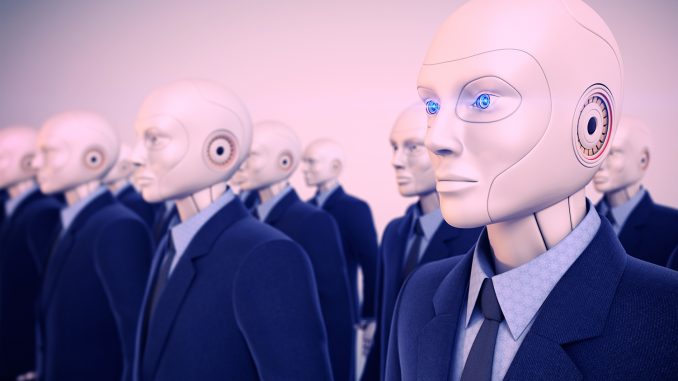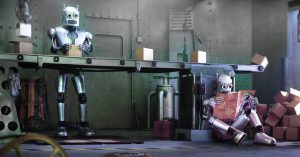
Robots are set to take over fifty percent of the global workforce by 2045.
With the advances in artificial intelligence, robots will be able to outperform humans in any task within the next 30 years.

BYPASS THE CENSORS
Sign up to get unfiltered news delivered straight to your inbox.
You can unsubscribe any time. By subscribing you agree to our Terms of Use
Latest Video
Shocking new statistics were announced during the annual meeting of the American Association for the Advancement of Science (AAAS) in Washington on Sunday.
RT reports:
Jobs at the middle of the skills curve are most at risk, according to Rice University computer science professor Moshi Vardi.
High end skills, including those of doctors and attorneys, are unlikely to be developed by machines in the foreseeable future and those at the low end such as food service workers are paid such low wages that automation would prove more costly.
“Folks like data entry clerks, hotel clerks, and almost anyone working in delivery or shipping are likely to suffer,” according to Vardi.
The rapid development of self-driving cars also has taxi and truck drivers worrying about their long-term future.
It’s a shift that’s been happening since the start of the Industrial Age, but current automation displaces less than 40 percent of global employment.
A report last month from the Oxford Martin School said that the OECD estimates that 57 percent of jobs were susceptible to automations deviated greatly across the globe.
While the US and UK are below the average with 47 and 35 percent respectively, developing nations such as Thailand and Ethiopia have a higher rate with 72 and 85 percent respectively. China is estimated to have 77 percent of its jobs susceptible to automation.
Within the US, the percentage of jobs at risk varies across the country. Boston and Washington have the lowest rate of 38 percent, compared to Fresno with 54 and Las Vegas with 49 percent.
The report warned that, in dealing with the “premature industrialization” brought on by automation, “emerging and developing countries could require new growth models and a need to upskill workforces”.
This week, aircraft maker Airbus announced the launch of a program to develop humanoid robotics technology which can perform manufacturing tasks in its factories.
The company claims the robotic workers would help increase production levels rather than replace workers.



